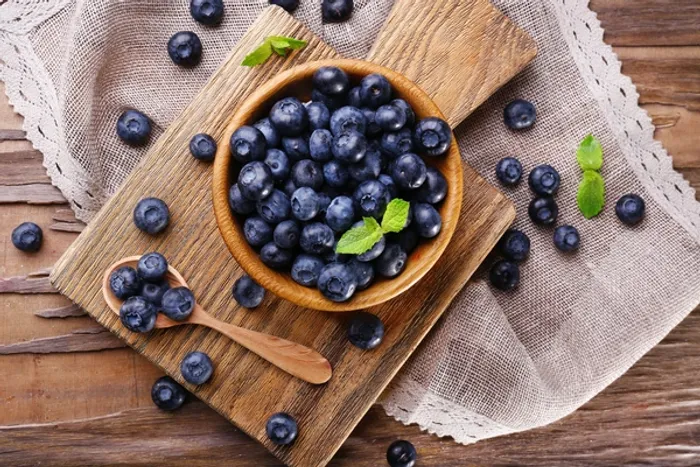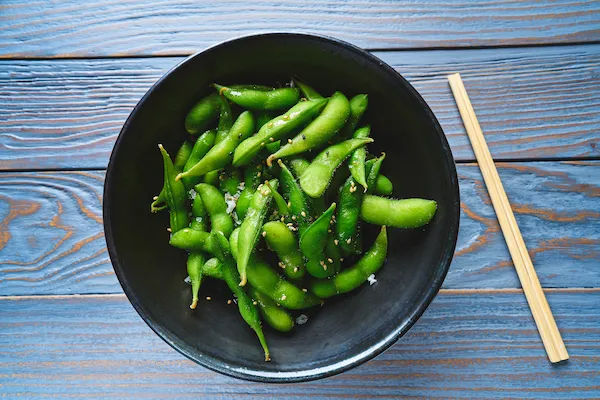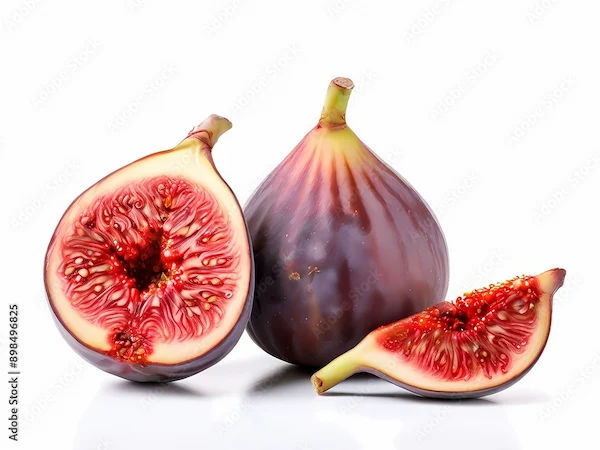Blueberries: Ayurvedic Uses, Benefits, and Side Effects
Discover blueberry benefits, Ayurvedic uses, antioxidants, side effects, and easy tips to enjoy this healthy fruit every day.


Introduction
Blueberries are among the most loved healthy fruits for good reason. They’re naturally sweet, easy to add to meals, and packed with antioxidants that help protect your cells from everyday wear and tear. In this guide, you’ll learn evidence-based blueberry benefits, how Ayurveda traditionally views and uses blueberries, and possible side effects and precautions so you can enjoy them wisely.
What makes blueberries especially interesting is how well they fit both modern nutrition science and traditional wellness practices. Let’s explore how this small fruit can play a big role in a balanced lifestyle.
What Makes Blueberries Special?
Blueberries are nutrient-dense. They provide:
- Dietary fiber for digestion and fullness
- Vitamin C for immune support
- Vitamin K and manganese for bone and metabolic health
- A wide range of antioxidants, especially anthocyanins (the pigments that give blueberries their deep blue-purple color)
Antioxidants help neutralize free radicals, which are unstable molecules formed by normal metabolism, stress, and environmental exposures. Eating antioxidant-rich foods like blueberries is linked with better overall health when part of a varied, plant-forward diet.
Evidence-Based Blueberry Benefits
Research on blueberries focuses largely on their polyphenols (especially anthocyanins), fiber, and how they fit into heart-healthy eating patterns. Here’s what current evidence suggests:
Heart and blood vessel health
- Diets rich in fruits, vegetables, and antioxidant-containing foods are associated with a lower risk of cardiovascular disease.
- Blueberry anthocyanins have been linked in population studies to markers of better heart health.
- Some small clinical trials suggest they may help support healthy blood pressure and blood vessel function when eaten regularly as part of a balanced diet.
Metabolic and blood sugar support
- Replacing refined snacks with fiber-rich fruit can help with steady energy and better appetite control.
- Large observational studies suggest people who regularly eat anthocyanin-rich berries have a lower risk of developing type 2 diabetes over time. While no single food prevents disease, blueberries can be a smart carbohydrate choice for many people when portioned into an overall meal plan.
Brain health across the lifespan
Early research, including small clinical studies and larger observational studies, suggests berry polyphenols may support aspects of memory and cognitive function with aging. While more research is needed, regularly including berries as part of patterns like the Mediterranean or MIND diets is a reasonable choice.
Digestive and gut health
- The fiber in blueberries supports regularity.
- Polyphenols may act as prebiotics, helping nourish beneficial gut bacteria. A diverse, plant-rich diet remains key for a healthy microbiome.
Weight-friendly snack
Blueberries are naturally low in calories and high in water and fiber, which can help you feel satisfied. Swapping sugary desserts or refined snacks for a bowl of blueberries is an easy way to cut added sugars while still enjoying something sweet.
Antioxidants in Blueberries: What to Know
- Anthocyanins: These antioxidant pigments give blueberries their color and are the main bioactive compounds studied for heart and brain benefits.
- Vitamin C: A classic antioxidant that supports immune function and collagen formation.
- A whole-food advantage: Antioxidants in whole fruits come packaged with fiber, vitamins, and minerals. This synergy is part of why nutrition experts recommend getting antioxidants from foods rather than supplements.
Ayurvedic Perspective: Traditional Uses and How to Enjoy?
Ayurveda is a traditional system of wellness that considers the qualities of foods and how they affect balance in the body. While blueberries are not native to classical Ayurvedic texts, modern Ayurvedic practitioners often apply general principles to berries:
- Qualities and balance: Blueberries are typically viewed as light, cooling, and mildly sweet-astringent. In moderation, they may be seen as supportive in warm seasons and balancing for individuals who benefit from cooling, hydrating foods.
- Digestion tips: Ayurveda often recommends pairing cooling fruits with small amounts of warming spices to support digestion. Try blueberries with cinnamon, ginger, or cardamom, or stir them into warm oatmeal or stewed fruit.
- Sattvic choice: Berries are commonly included in sattvic (fresh, simple, plant-forward) eating patterns that emphasize clarity and calm.
- Practical uses: Enjoy fresh, lightly stewed, or blended into lassi or smoothies. Avoid mixing large amounts of fruit with heavy meals if you find it slows your digestion.
Important note: Ayurvedic uses reflect traditional perspectives. They can complement, but not replace, evidence-based medical advice. If you have a health condition, follow your clinician’s guidance first.
How Much Should You Eat?
- A practical serving is 1 cup of fresh or frozen blueberries. This counts as about one cup of fruit toward your daily goal.
- Most adults benefit from 1.5–2 cups of fruit per day as part of a balanced diet. Aim to “eat the rainbow” by mixing blueberries with other fruits for broader nutrient coverage.
Consult a Top Ayurveda Specialist for Personalised Advice
Easy Ways to Add Blueberries to Your Day
- Breakfast: Add oatmeal, yogurt, or whole-grain pancakes.
- Snacks: Pair with a handful of nuts for fiber-plus-protein staying power.
- Salads and bowls: Toss into leafy green salads with whole grains and seeds.
- Smoothies: Blend with spinach, Greek yogurt, and cinnamon.
- Sauces: Simmer into a quick compote for spooning over porridge or baked salmon.
- Frozen convenience: Keep a bag of frozen blueberries on hand; they’re picked at peak ripeness and retain nutrients well.
Safety, Side Effects, and Who Should Be Cautious
Blueberries are safe for most people when eaten as food. Still, consider the following:
- Allergies: Berry allergies are uncommon but possible. Stop eating blueberries and seek medical advice if you develop itching, hives, swelling, or trouble breathing.
- Blood thinners (warfarin): Blueberries contain vitamin K. Sudden, large changes in vitamin K intake can affect how warfarin works. If you take warfarin or other vitamin K–sensitive medicines, keep your vitamin K intake consistent and discuss your usual fruit and vegetable pattern with your clinician.
- Blood sugar management: Blueberries are a carbohydrate-containing food. If you use insulin or diabetes medications, count blueberries in your meal plan and monitor your response.
- Kidney stones: If you have a history of stones, follow your clinician’s personalized diet guidance (such as fluid intake, calcium with meals, and any oxalate recommendations). Do not rely on general lists—your care team’s plan should come first.
- Food safety: Rinse berries just before eating. Store fresh blueberries in the refrigerator and use them within a few days. Frozen berries are a safe, nutritious backup.
How Blueberries Fit Into Healthy Eating Patterns?
Blueberries shine when they’re part of an overall pattern rich in plants:
- Fill half your plate with fruits and vegetables at meals.
- Choose whole grains, lean proteins, legumes, nuts, and seeds.
- Limit added sugars and refined snacks; use fruit to satisfy a sweet craving.
- Aim for variety—blueberries are one of many healthy fruits that contribute fiber, vitamins, minerals, and antioxidants.
Consult a Top Ayurveda Specialist for Personalised Advice
Consult a Top Ayurveda Specialist for Personalised Advice

Dr. Anjan Das
Ayurveda Practitioner
8 Years • Ayurvedacharya ( B.A.M.S )
Dumdum
Vedhive Ayurveda Clinic, Dumdum

Dr. Shiv Prakash Singh
Ayurveda Practitioner
19 Years • BAMS
Kolkata
Vedhive Ayurveda College Street, Kolkata

Dr. Rik Sadhukhan
Ayurveda Practitioner
8 Years • BAMS
Kolkata
Vedhive Ayurveda, Ballygunge, Kolkata

Dr. Pepsy Jose
Panchakarma Practitioner
14 Years • BAMS, MD Ayurveda (Panchakarma)
Bengaluru
AYURRHYTHM HOLISTIC CLINIC AND PANCHAKARMA THERAPY, Bengaluru
Consult a Top Ayurveda Specialist for Personalised Advice

Dr. Anjan Das
Ayurveda Practitioner
8 Years • Ayurvedacharya ( B.A.M.S )
Dumdum
Vedhive Ayurveda Clinic, Dumdum

Dr. Shiv Prakash Singh
Ayurveda Practitioner
19 Years • BAMS
Kolkata
Vedhive Ayurveda College Street, Kolkata

Dr. Rik Sadhukhan
Ayurveda Practitioner
8 Years • BAMS
Kolkata
Vedhive Ayurveda, Ballygunge, Kolkata

Dr. Pepsy Jose
Panchakarma Practitioner
14 Years • BAMS, MD Ayurveda (Panchakarma)
Bengaluru
AYURRHYTHM HOLISTIC CLINIC AND PANCHAKARMA THERAPY, Bengaluru
More articles from General Medical Consultation
Frequently Asked Questions
Are blueberries good for weight loss?
Blueberries can support weight goals because they’re low in calories and high in water and fiber, helping you feel full. They’re not a magic solution, but swapping higher-sugar desserts or refined snacks for blueberries can reduce added sugars and calories as part of a balanced plan.
How many blueberries should I eat per day?
A cup of fresh or frozen blueberries is a reasonable serving for most adults and counts toward the recommended 1.5–2 cups of fruit per day. Adjust portions based on your total calorie needs and blood sugar goals.
Are frozen blueberries as healthy as fresh?
Yes. Frozen blueberries are typically picked at peak ripeness and quickly frozen, preserving nutrients and antioxidants. They’re a convenient, budget-friendly way to enjoy blueberries year-round.
Do blueberries prevent urinary tract infections (UTIs)?
Cranberries—not blueberries—are the fruit most studied for UTI prevention, and even those benefits are specific and not guaranteed. Blueberries support overall health but are not a proven way to prevent UTIs.
Are blueberries safe during pregnancy and for children?
Yes, blueberries are generally safe and nutritious during pregnancy and for children. Wash well, serve in age-appropriate textures (mash or cut for toddlers), and include them as part of a balanced diet.


 Health Benefits, Uses, and Side Effects.webp)

